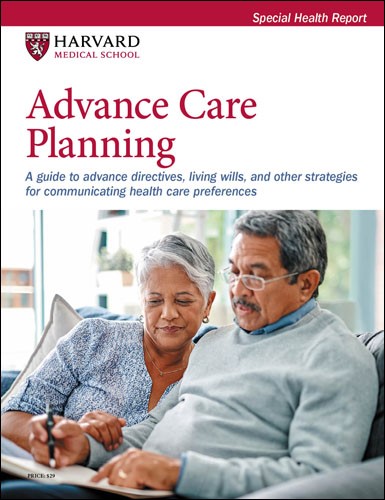Does your advance directive really capture your wishes?
News briefs
- Reviewed by Anthony L. Komaroff, MD, Editor in Chief, Harvard Health Letter; Editorial Advisory Board Member, Harvard Health Publishing

An advance directive does two things: it lays out the medical care you want if you're unable to make your own health care decisions (a living will) and it names the person you'll want to make those decisions for you (your health care proxy). Too often, however, those documents don't reflect people's actual wishes, suggests a research letter published online April 25, 2022, by JAMA Internal Medicine. Researchers interviewed 20 people ages 65 or older who had advance care directives. Participants also had serious chronic illness and had recently ended a hospital stay. During the interviews, scientists found some common themes: participants felt they'd completed generic legal forms, couldn't remember details of the forms, or didn't think any further about the care plans the forms laid out. Some participants also said it was unnecessary to revisit the actual plans, even though they hadn't considered care goals based on their values and beliefs. Just remember: an advance care directive is only one part of the plan for your future care. It should hinge on personal reflection and frank discussions with your loved ones and doctors about the type of care important to you. Read your plan if you have one, and know that it's not too late to change the terms if you want.
Image: © shapecharge/Getty Images
About the Author

Heidi Godman, Executive Editor, Harvard Health Letter
About the Reviewer

Anthony L. Komaroff, MD, Editor in Chief, Harvard Health Letter; Editorial Advisory Board Member, Harvard Health Publishing
Disclaimer:
As a service to our readers, Harvard Health Publishing provides access to our library of archived content. Please note the date of last review or update on all articles.
No content on this site, regardless of date, should ever be used as a substitute for direct medical advice from your doctor or other qualified clinician.
















